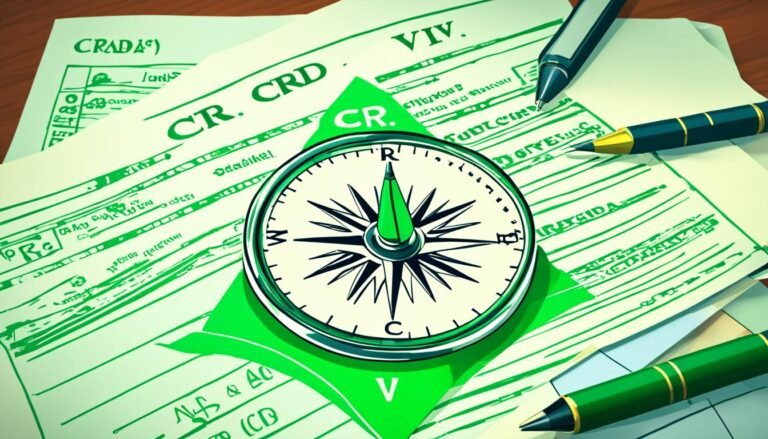HR Compliance in Ireland: Essential Guide
In Ireland, the pharmaceutical and finance sectors lead with specialized training for HR best practices. These trainings aim to meet strict industry standards. It shows how deeply HR compliance matters in Ireland. For anyone in HR, following these rules is very important, from setting policies to employee training.
Irish employment law covers many things, like probation time and leave rights. Companies keep detailed records, such as contracts and work hours, to pass official checks. This seriousness not only means companies follow the law. It helps create a better work-life balance, something many companies value highly.
Businesses in Ireland must also follow the Employment Equality Acts and be careful with data protection laws. They should report clearly, following the Companies Act. This way, they keep their HR practices above board and efficient. To do this, companies need to stay flexible and update how they handle rules as laws change.
Key Takeaways
- HR best practices in Ireland need special training, mostly in pharma and finance.
- Companies value work-life balance, supporting flexible work.
- Keeping good records is key for passing checks from the Workplace Relations Commission.
- Clear reporting is a must, following laws and company rules.
- Respecting Employment Equality Acts and data laws keeps HR ethical and legal.
- Businesses must keep up with new laws to stay compliant.
Understanding HR Compliance in Ireland
To be compliant in Ireland, one must truly grasp its legal system. This system includes laws like the Employment Equality Acts and the Safety Act. It’s important to know these for the right HR practices.
Putting employees first means following Irish laws closely. The Workplace Relations Commission checks that workplaces are safe and keep fair records. They ensure businesses respect employees’ rights properly.
Understanding HR compliance means focusing on some key points:
- The minimum wage in Ireland for anyone over 20 will be €12.70 from 2024.
- Sick pay will switch to 10 days by 2026 to improve well-being.
- Parental leave gets €274 a week for those taking time off.
- Employers must ensure safe workplaces, good breaks, and the right pay.
It’s also vital to keep up with legal updates, like GDPR. In 2022, over 9,000 cases in Ireland were about GDPR compliance. This shows how crucial data privacy is in HR.
Every company should have clear HR policies and handbooks. Regular audits can check if they’re following the rules. Often, companies get help from experts to make sure they’re fully compliant.
Creating a respectful, honest, and fair workplace is key in Ireland. Following these principles leads to compliance and a better work environment. It’s about more than just obeying laws; it’s about building a great place to work.
| Aspect | Details |
|---|---|
| Minimum Wage Increase | €12.70 from January 1, 2024 |
| Sick Pay | Increasing to 10 days by 2026 |
| Parental Leave Benefits | €274 per week |
| Income Taxes | 20% to 40% |
| GDPR Investigations | Over 9,000 cases in 2022 |
Employment Law and Workplace Regulations
It’s key for any business to know Irish employment law. It covers everything from trial periods to vacation days. Important rules include the Employment Equality Acts and laws about data protection. Businesses must keep up with changing laws to protect their workers’ rights.
Key Employment Laws
Irish law works to make sure employees are treated fairly. The Employment Equality Acts 1998 to 2015 stop discrimination in work. This ensures everyone has the same chances for jobs and promotions. The Organisation of Working Time Act 1997 sets limits on hours and ensures time off, promoting a balanced life for workers.
The Maternity Protection Act 1994 helps new mothers take time off and go back to work. The Parental Leave Acts 1998-2019 let parents take time off work. The Work Life Balance and Miscellaneous Provisions Act 2023 gives 5 days off to care for a sick family member.
Workplace Audits and Inspections
Businesses must be ready for checks to follow the law. The Workplace Relations Commission keeps things fair by checking up. It’s important to have clear paperwork on contracts, hours, and pay. This helps show you’re following the rules.
Keeping data safe is also very important. The GDPR makes sure companies handle employee data safely. Good practices in how you handle data keep you out of trouble and keep your employees trusting you.
Penalty for Non-Compliance
Not obeying the law can cost a business a lot of money in fines. They can also face legal action if they treat employees unfairly. Following laws about equality and data protection is a must. It makes for a workplace that’s both fair and respectful to all.
| Law | Key Provisions |
|---|---|
| Employment Equality Acts | Prohibits workplace discrimination on various grounds; ensures equal opportunities. |
| Organisation of Working Time Act | Regulates working hours, rest periods, and holiday entitlements. |
| Maternity Protection Act | Safeguards maternity leave and return-to-work rights. |
| Parental Leave Acts | Provides unpaid leave for parents to care for children. |
| Work Life Balance Act | Introduces 5 days of unpaid leave for carers and parents with serious medical needs. |
| GDPR | Mandates stringent data protection and management practices for employee information. |
Employee Contracts and Payroll Compliance
Staying on top of Irish HR rules means focusing on contracts and payroll. Employment contracts need to spell out working hours, job duties, what deductions can be made, and the kinds of leaves an employee gets. With the minimum wage laws rising to €12.70 per hour in January 2024, companies should check contracts often to keep things fair and legal.
Payroll records have to be right for the law. Employers in Ireland need to keep records for six years. These records should show wages, taxes, and other deductions. Every month, they also have to send detailed payment reports to Revenue. This keeps the HR part clear and sticks to the law. MegaPay On-Cloud by SD Worx uses top-notch tech and follows the rules closely. It calculates things like gender pay gaps and sick pay according to law. It also keeps data safe in Microsoft Azure’s data centers.
In Ireland, people work about 40 hours a week. They shouldn’t work more than 48 hours. Keeping good working hour records is crucial. This keeps employers safe from fines. They also need to correctly report wages and deductions to Revenue. They must follow the rules for things like sick pay and parental leave benefits. Doing this right avoids big fines. So, having strong payroll systems is key.
Key Insights for Payroll Compliance:
- Minimum wage in Ireland is €11.30 per hour, growing to €12.70 in 2024.
- Everyone gets four weeks paid vacation each year. Part-timers get 8% of their hours as vacation pay.
- Statutory sick pay is 70% of normal pay, max €110 per day. This will be for 10 days by 2026.
- Mom and dad leaves pay is €274 a week for the set times you can take off.
- Monthly PAYE reports need to be correct to Revenue.
By following these tips and using good payroll systems, workplaces can run smoothly and legally. Cintra Ireland helps a lot. They make sure employment contracts meet the rules and that pay records are accurate. This helps keep everything in order and in line with the law.
Health and Safety Standards
Health and safety are key in Ireland’s workplaces. Laws like the Safety, Health, and Welfare at Work Act 2005 are crucial. They require employers to keep high safety standards, making sure workplaces are safe. This law, alongside other specific rules from 2007 to 2020, aims to create a healthy and safe work environment for everyone.
Ensuring a Safe Workplace
Employers must keep their workplaces safe. They need to have safe equipments to prevent injuries or health issues. It’s also important to have someone looking after safety, known as a safety officer. This person helps check for risks and make sure the right safety gear and training are available.
According to the Safety, Health, and Welfare at Work Act 2005, employers must have safety rules that include:
- Allow paid time off for safety awareness training
- Inform employees about risks necessitating protective equipment
- Report workplace accidents to the Health and Safety Authority (HSA)
If workers can’t work due to a workplace accident, they can get help. They can claim an Injury Benefit from the Department of Social Protection. And if someone needs to seek legal action because of a workplace accident, they can go through the Injuries Resolution Board.
Workplace Harassment Policies
Stopping harassment is crucial to have a safe workplace. Laws like the Employment Equality Acts from 1998 – 2015 help make sure everyone has equal chances. They forbid discrimination. Companies need to have strong anti-harassment programs and policies to keep respect and dignity at work.
It’s up to employers to make anti-harassment training a regular job for everyone. They should also have policies that tell how to report harassment and how it will be dealt with. These steps keep workplaces safe, following guidelines from the Health and Safety Authority.
| Requirement | Obligation |
|---|---|
| Provide training | Equip employees with necessary skills for using protective clothing and understanding workplace safety. |
| Conduct risk assessments | Regularly assess and mitigate potential workplace hazards. |
| Report accidents | Notify the Health and Safety Authority (HSA) of any workplace incidents. |
| Foster respect | Develop and enforce strict anti-harassment policies and training programs. |
Data Protection and Privacy
The General Data Protection Regulation (GDPR) started on May 25, 2018. It makes protecting personal data, especially in HR, very important. The Data Protection Act 2018 backs this up. It makes sure HR follows the GDPR tightly. This is by keeping data safe and protecting employees’ privacy.
Under the GDPR, employees have the right to see their data and correct errors. Employers must reply to these requests within a month. They can take two more months if the request is tough. Employers also have to tell the Data Protection Commission (DPC) about any data breaches within 72 hours. This quick response shows they are keen on being open and acting fast.
The DPC’s latest report shows more people in Ireland are worried about GDPR. It points out problems companies have in keeping HR data safe. That’s why two guidance notes have been provided. They’re “Data Protection in the Workplace: Employer Guidance” and “Subject Access Requests: A Data Controller’s Guide.” These help businesses handle tricky issues with personal data protection.
Also, it’s important to follow the GDPR when dealing with email data. Personal data should be used only for reasons agreed upon when the data is collected. Misusing data, like checking on employee attendance with car park data, can lead to complaints. This shows why handling employee data the right way is crucial.
Companies should make sure others who handle employees’ data also follow the GDPR. This is why strict data protection is vital. Organizations that work with sensitive data may need to have a Data Protection Officer. This person would ensure they meet all GDPR rules.
Doing Data Protection Impact Assessments (DPIA) is now very important. This is especially true for watching employees too closely. These checks help to avoid privacy issues. They make sure personal data is well protected at work. Also, providing clear details through Employee Privacy Notices is a must. This practice increases how open data activities are.
HR staff keep facing the task of checking if work agreements follow privacy rules. They sometimes find using employee agreement not very suitable for personal data use.
| Key GDPR Compliance Metrics | Requirement |
|---|---|
| Data Subject Access Requests (DSARs) | 1 month response time, extendable by 2 months for complex requests |
| Data Breach Reporting | Within 72 hours to the Data Protection Commission (DPC) |
| Appointment of Data Protection Officer | Required for processing sensitive data |
Moving HR jobs like payroll offshore can save money. But keeping with GDPR and data security is a must. Organizing data flows helps stay compliant when moving data. It’s also vital to make the roles clear between those in charge of data and those who process it. This is known through the example of pension trustees (data controllers) and scheme administrators (data processors).
In short, protecting data and privacy is at the core of HR’s work. Having and updating policies on data protection shows real care for employee privacy. It ensures following the Data Protection Act 2018 and GDPR.
Conclusion
In Ireland, making sure your business follows HR laws is key. It’s important to have an HR plan that’s both ethical and legal. This helps your company stay in line and stand out. Over the past 20 years, workplaces have become more varied. So, it’s critical to welcome different backgrounds and skills.
HR compliance is about obeying laws on hiring, contracts, safety, privacy, and fairness. Taking a forward approach helps your company meet rules like the GDPR and safety laws. This keeps you legally safe and boosts team spirit and work quality.
When these ideas are part of your HR plan, trust grows. This boosts how involved and smart your team is, leading to better choices and new ideas. Keeping up with rules in Ireland makes your company more appealing to the best workers. It also helps match customers’ needs and do well in the changing business world.
Source Links
- HR Compliance in Ireland – Parakar
- HR Compliance -The Ultimate Guide for SMEs – HRLocker
- The essential guide to HR compliance in Australia
- What are the most common HR compliance issues in Ireland and how can they be avoided?
- HR Compliance | HR and GDPR Compliance | HR Buddy
- The Value of HR Advisory in Ireland – Navigating Complexity and Ensuring Compliance
- Employment laws in Ireland
- Employers’ obligations in Ireland
- Payroll Compliance: How to Meet Payroll Rules and Regulations | SD Worx
- A Guide to Payroll and HR in Ireland | Expanding into Ireland
- Employment Contracts & Employee Handbooks | Cintra Ireland
- Health and safety at work
- HR Compliance | HR and GDPR Compliance | HR Buddy
- Workplace Health and Safety: A Guide for HR Managers – Servisource
- Data protection in the workplace
- Irish Data Protection Commission Issues Guidance for Employers
- Data Protection For HR Professionals | Common HR Challenges
- Beyond Compliance: The Strategic Impact of HR Audits
- Compliance In Ireland: Meeting Workplace Standards And Regulations
- The essential guide to HR compliance in the UK








